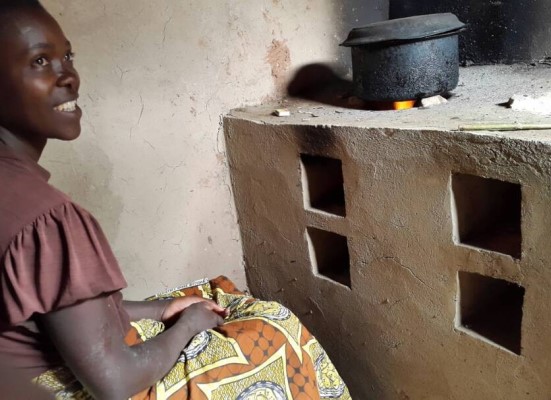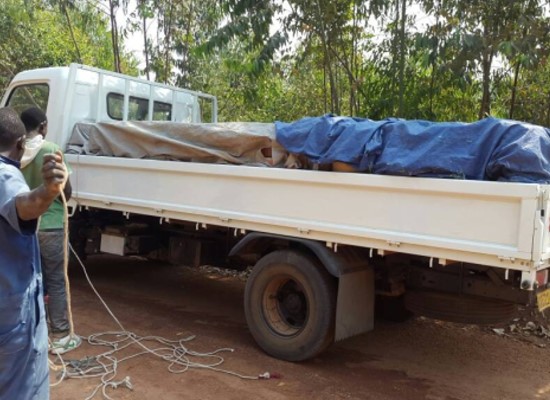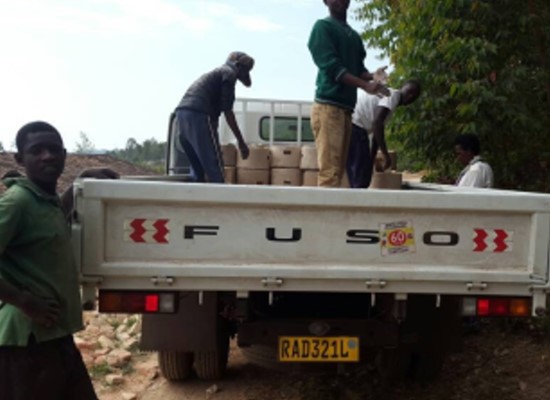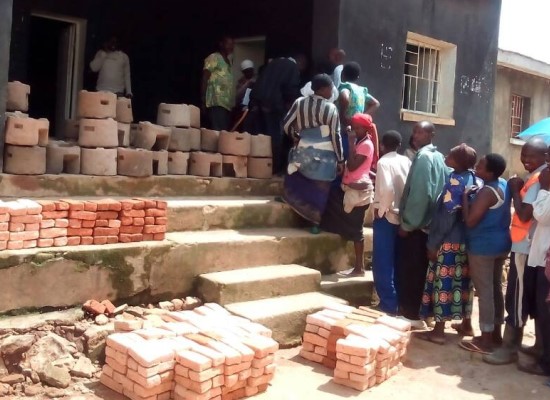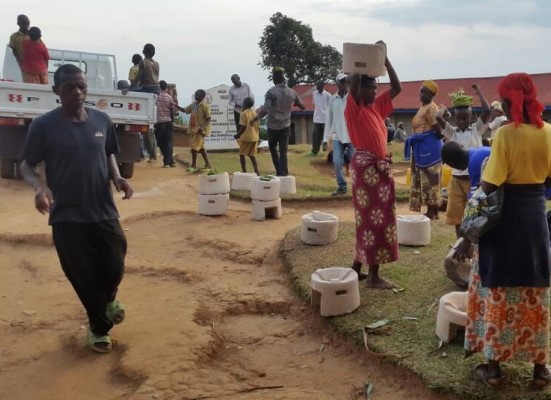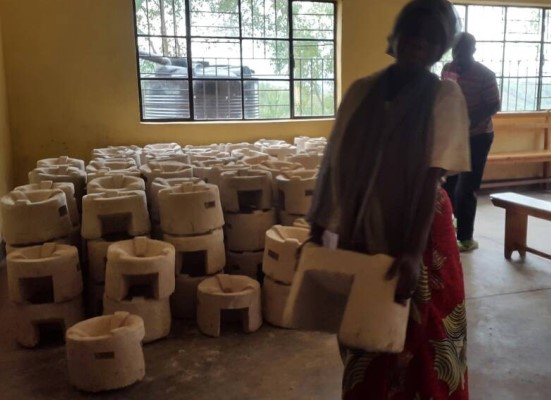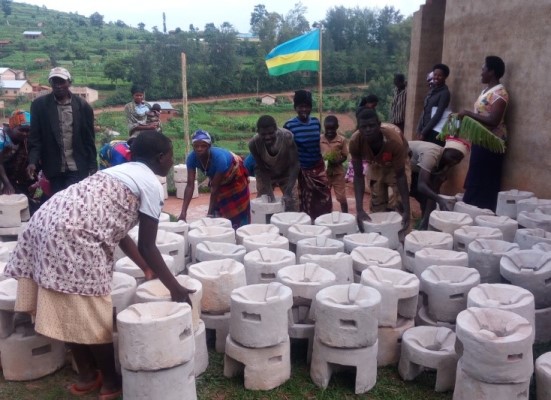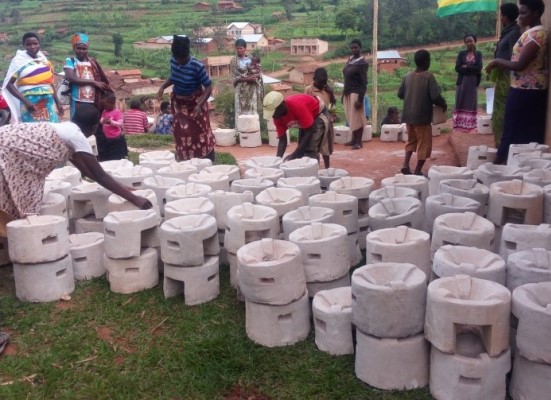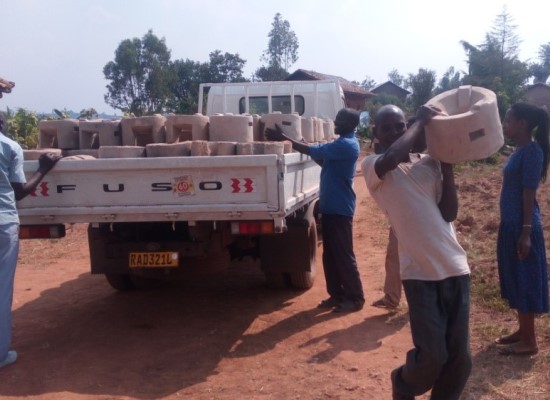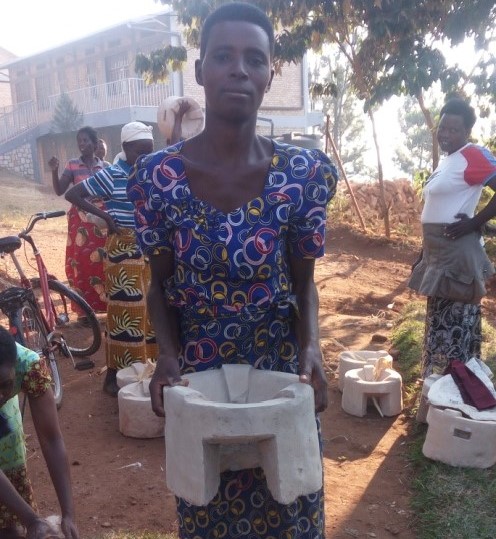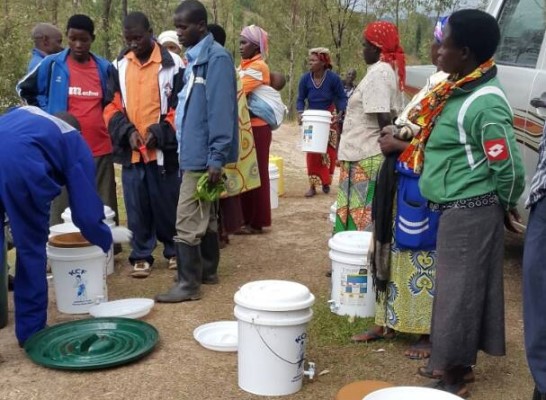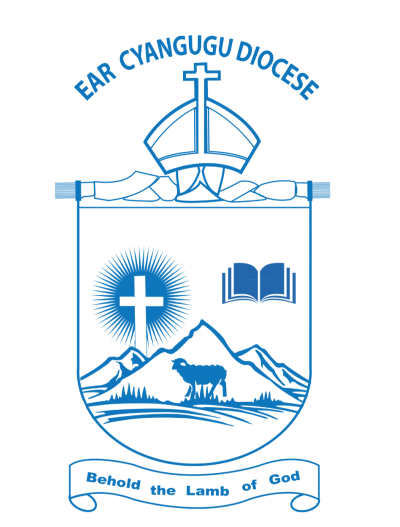The RDIS organisation had helt a very important meeting which brought together participants from Local Government, Public Institutons, Church Leaders and Project Developpers. The Main Stakeholder at the same time one of the speakers was the Mayor of Rusizi District Dr. Anicet KIBIRIGA.
THE MEETING WAS MEANT TO
- Inform participants about “COOKSTOVES PROJECT RUSIZI-RWANDA”; gather their opinions and advice for successful project implementation and monitoring
- Seek for participants’ feedbacks, preferably by the end of the meeting to easy processes and information gathering
- Bring onboard all stakeholders for the success of the project throughout the whole project management cycle
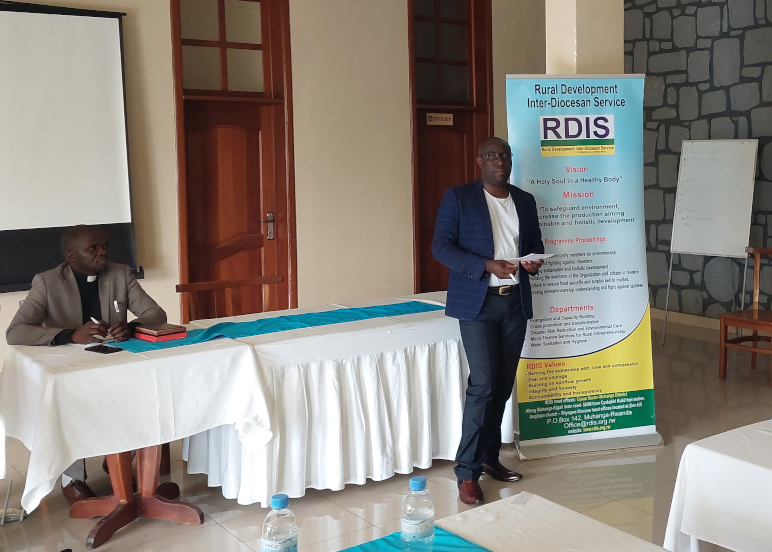
The meeting brings together personalities from different institutions including, but, without limitation to:
- The Mayor of Rusizi District, Dr. Anicet KIBIRIGA
- Rev Jean Paul USABIMANA who stood for the Rt Rev Francis KAREMERA, the Bishop of Cyangugu Anglican Diocese
- National Women Council / Rusizi district- Mrs. Jeanne d’Arc NIYONSABA
- First and Second Deputies Legal Representatives of RDIS, Pastor Solange MANISHIMWE and Mr. NSABIMANA Jean Chrysostome
- The Secretary of National Youth Council/ Rusizi District, Mss URAYENEZA Peruth
- Delegate of Rwanda Energy Group/Rusizi District, Mr. Lambert IMANIRAKIZA
- Senior Staff of Cyangugu Anglican Diocese
- Senior Staff of Rusizi District including the Permanent Secretary of Joint Action Development Forum Mr. MUTARUTINYA
- 9 Executive Secretaries of Nine Sectors in Rusizi districts
THEMES DELIVERED DURING THE MEETING
- Introduction and opening, by RDIS Executive Secretary, Pastor NTARINDWA Viateur
- Explanation of the project, target areas, developer, Key project information, by RDIS Executive Secretary, Pastor NTARINDWA Viateur
- Achievements between Canopy Energy and RDIS
- Sustainability of the project, project potential impacts, risks and mitigation measures, by Eng. Richard Madete, RDIS Co-Worker sent by United Evangelical Mission
- Discussion on Inputs and grievance Mechanism, by Pastor ARIHO Boaz/ Member of RDIS-BoD
- Discussion on Effective ways of monitoring Sustainable Development Impacts, by Mr. MINANI Vincent/ Project Manager COOKSTOVES PROJECT RUSIZI-RWANDA
- Closing remarks, by Dr. Anicet KIBIRIGA / Mayor of Rusizi
- Introduction and opening
The meeting was officially opened by Pastor NTARINDWA Viateur, The Executive Secretary of RDIS organization after a quick introduction group- round, RDIS overview and Goals of the Stakeholders Consultation meeting
- Explanation of the project, target areas, developer, Key project information
"To safeguard environment, increase production aiming at sustainable and holistic development" is the mission statement of RDIS. The overall goal is to increase the quality of services which RDIS delivers. The Organization relies on transparency, commitment to serve, accountability and a focus to deliver results. The services are:
- Environmental Care and Disaster Risks Reduction
- Crops value Chain
- Capacity Building and Evangelism
- Hygiene Water and Sanitation
- Saving and Credit for Rural Entrepreneurship
Like mentioned before the goals of the meeting were inform the stakeholders about the project, to get feedback and to bring all participants onboard. This is the foundation for future success of the project. "We need you so much!", stated Viateur Ntarindwa,
He continues with the words: "This project follows the guidelines of the first "Carbon Emission Reductions for Self-Sustainable Environmental Care One” (CCER) project started in 2017, which is a development project implementing improved cooked stoves and ceramic water filters. It changed the paradigm in the way we think about climate change and development, by allowing those that used to be called "beneficiaries” to now become the agents of change, the “heroes” of climate action." Under the silhouette of SDGs Good Health and Well Being (3) and Climate Action (13) this project targets to support the most volunerable members of the communities. Specifically children and women, will profit from improved cooking stoves. This project is only possible because of the partnership between Canopy Energy and RDIS. Heroes (Households) of the project will generate carbon credits by using the cook stoves, these will provide all the environmental and social benefits. The carbon credit points will get transferred to Canopy Energy. The adoption of improved cook stoves by most households will result in a better environment, reduced cost of living (less fuel usage) and healthier families free from health problems caused by household air pollution.
RDIS will play a main role, as Implementer in this project. That means managing the process of distribution of all its parts. "RDIS has its own trained installers, who are already experienced, because of the installation process in "Carbon Emission Reductions for Self-Sustainable Environmental Care One” (CCER) project and they will undergo refresher training at the stove production center." Canopy Energy will advise and support Rural Development Inter-Diocesan Services in the collection of required data to enable the Project to be submitted to the Carbon Standard. Prepare all project supporting documentation (including but not limited to baseline report, Non- renewable Biomass (NRB) studies, Project Design Documents, Emissions Reductions calculations, monitoring report) in line with Carbon Standard requirements.
The Executive Secretary ended his presentation with the following words: "In summary, RDIS’ efforts will help tackle several common problems that Rwanda faces as a result of using inefficient cooking methods, through the installation of improved cook stoves:
- Reduction of respiratory illnesses caused by indoor and outdoor air pollution
- Reduction of injuries occurring in unsafe kitchen environments, such as burns from contact with the stove’s hot surface, scalds from moving pots from a stove that has raised obstructions along its edges, or cuts through contacts with sharp edges
2.1 Achievements by Canopy Energy and RDIS
The achievements made so far by RDIS in close collaboration with CANOPY ENERGIES, ANCHOR ECO and local Leadership were discussed whereby already:
- Memorandum of Understanding as well as the Contract Signed between RDIS & CANOPY ENERGIS
- Baseline survey already conducted (Kitchen Performance Test on three stones fire and the second one to be conducted on 120 improved cook stoves installed during this pilot phase)
- Some installers already identified and trained
- 120 households got their improved cook stoves installed
- Stakeholders Consultation Meeting held on 2oth December 2023
Participants were explained about the nature of COOKSTOVES PROJECT RUSIZI-RWANDA: Reduction of wood consumption; reduction of environmental degradation; reduction of pressure on environment; money and time saving; reduction of eye and respiration diseases and last but not least, generation of carbon credits.
- Sustainability of the project, project potential impacts, risks and mitigation measures
The UEM consultant Ir. MADETE Richard highlights the sustainable development Impacts:
- Reduction of respiratory illnesses caused by indoor air pollution
- Reduction of injuries occurring in unsafe kitchen environments, such as burns from contact with the stove’s hot surface, scalds from moving pots from a stove that has raised obstructions along its edges
- Reduction of firewood usage
- Reduction of money spent in purchasing firewood
- Reduction of time spent in obtaining firewood
- Reduction in cooking time
- Increased employment
- Increased generation of income
- Increased living conditions of the households
These various benefits are crosslinked to the SDGs. Madete spoke about Climate Action (13) and Good Health and Well Being (3) like speaker ES Ntarindwa before. He adds No Poverty (1)0 and Gender Equality (5). "No Poverty is obvious, if you have reduced costs, you can spend the money otherwise." Gender Equality gets touched, because mainly women, who are responsible for cooking, get more time to do other income generating activities. A women told him in the context of CCER1, how much time she saves in using this stove. "This stove cooks on its own." During his whole presentation, but especially at the end he motivates the participants to speak up and discuss their thoughts about the project. "What are your concerns with regard to our project and how could your concerns be adequately addressed?"
- Discussion on Inputs and Grievance Mechanism
The grievances that may occur throughout the implementation were examined in plenary session to better understand who does what, how and why. Participants, committed to: explain about the project to the grassroots level such that end users of the improved cook stoves understand what is it all about, their contribution, its benefits, short and long terms impact on their lives. Information sharing from top down and vice versa from bottom to top is a key to prevent grievances at our highest possibilities; participants committed to enhance communication and information sharing. Pastor Ariho said: "Establishing a timely consistent, structured and trusted procedure for receiving and addressing concerns of communities and complaints."
- Discussion on Effective ways of monitoring Sustainable Development Impacts
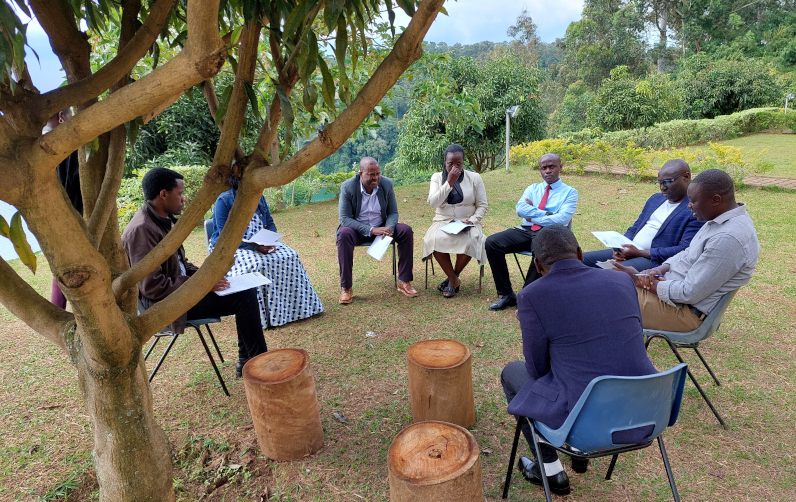
Throughout the presentations and group works, Participants had expressed their readiness and commitment to contribute to the success of the project throughout the 7 years’ time. The interconnection of the benefits of the project in line with sustainable development goals. Thisproject refers to the following SDGs: Good Health and Well Being (3) and Climate Action (13). which obviously secure:
- Reduction of firewood usage
- Reduction of money spent in purchasing firewood
- Reduction of time spent in obtaining firewood
- Reduction in cooking time
- Increased employment
- Increased generation of income
- Reduction of respiratory illnesses caused by indoor and outdoor air pollution
- Reduction of injuries occurring in unsafe kitchen environments, such as burns from contact with the stove’s hot surface, scalds from moving pots from a stove that has raised obstructions along its edges, or cuts through contacts with sharp edges
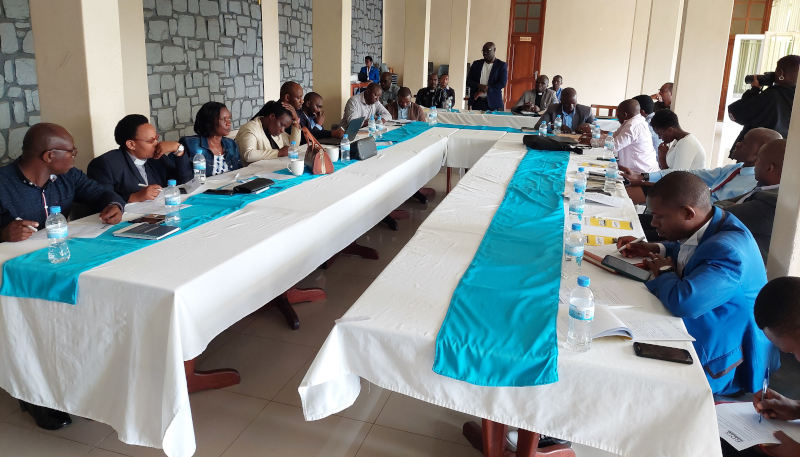
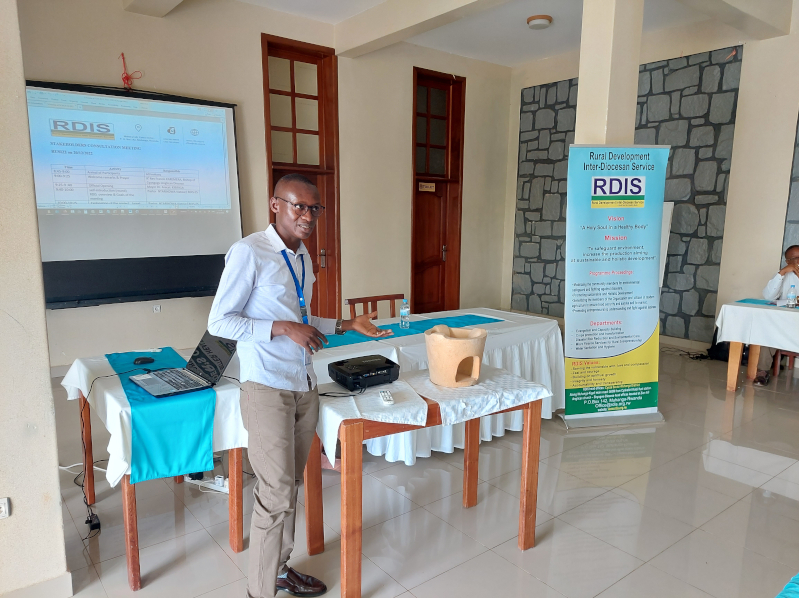
- Closing remarks
In his closing remarks, Dr. Anicet KIBIRIGA, the Mayor of Rusizi district underlined the following concerns:
- He thanked the project Developer –RDIS and the Anglican Church especially Cyangugu Diocese for the existing programs and project that benefit the members of the communities in Rusizi district
- He confirmed effective collaboration of Local Leadership and RDIS throughout the implementation, monitoring of the project given it help the district to achievement the target of distributing improved cook stoves to households in Rusizi as specified in the performances contracts of the year 2022 -2023 for RUSIZI District
- The draws the attention of all participants to continue working closely together (commonly tujyanemo approach – let all of us get in) adopted by Rusizi District and all its development Partners for the project to impact the lives of communities where stoves will be distributed
- The durability of the project, the Mayor emphasized that local leaders and project developer “RDIS” have to monitor and sensitize the end users of the stoves for them to better understand what are the benefits so that they never turn back to their traditional three stones fire which consume much wood
The overall resolution from the meeting “let all of us closely get in and implement the project for the benefits of the members in the communities we serve; start date for scale up January 2023”
After all participants had filled in all distributed forms in their working groups time (Stakeholders meeting evaluation form, grievance mechanism form and participants form) Rev Jean Paul USABIMANA closed the meeting with a thanksgiving prayer.
Done on 20th December 2022
by Pastor NTARINDWA Viateur, RDIS Executive Secretary
and Mr. Hendrik Ziemann, volunteer at RDIS organization

